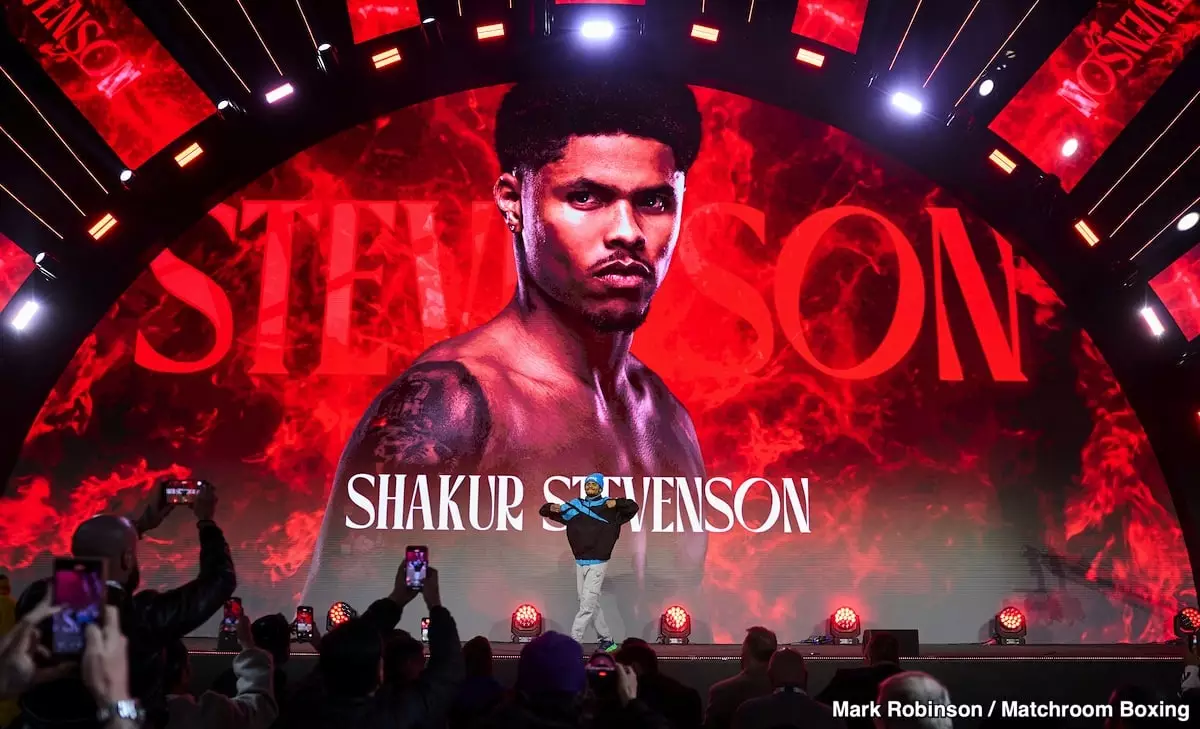In the world of boxing, the path to greatness is often paved with anger, ambition, and disappointment. One of the sport’s young talents, Shakur Stevenson, is currently grappling with the lingering bitterness stemming from his unmet expectations of a bout with Vasily Lomachenko. Since making the leap to the lightweight division two years ago, Stevenson has expressed his belief that Lomachenko deliberately avoided a fight with him. For Stevenson, this lack of opportunity is not just a missed fight; it’s a disillusionment with a fighter he once idolized. The juxtaposition of Stevenson’s rising ambition compared to Lomachenko’s illustrious yet waning legacy produces a compelling narrative that captures the frustrations of athletes who crave both recognition and respect.
The Perceptions of Worthiness
It is evident that recognition within boxing is disproportionately linked to a fighter’s popularity, an inconvenient truth that Stevenson must confront. When he moved up to the lightweight division, Stevenson did not possess the notoriety that characterized Lomachenko’s career. Lomachenko likely saw Stevenson not as a worthy adversary but as an unglamorous risk, reinforcing an unsettling reality where popularity often supersedes skill. Despite this harsh judgment, Stevenson’s disappointment is palpable. “I looked up to him,” he said of Lomachenko, revealing a vulnerability that resonates with those who have been rejected or overlooked. Wollongong’s champion may have proven an overestimation by invoking admiration but it also serves to highlight the chasm between them as fighters and public personas.
The Pain of Missed Opportunities
Stevenson’s recent fights have raised questions about his visibility and relevance in the boxing universe. A fight against Josh Padley, hidden within the undercard of a lesser-known event, is a stark reminder that his star is still in the process of rising, rather than shining brightly. This reality only adds fuel to his frustration towards Lomachenko’s evasiveness. Fans and commentators alike are left to ponder whether Lomachenko’s decision to avoid Stevenson stems from a strategic analysis or a reluctance to confront a challenger who embodies the potential to usurp his legacy. It is this misplaced assessment of worthiness that can consistently hinder fighters seeking to ascend the ranks.
A Clash of Generations
Lomachenko, now at 37, has experienced a gradual decline attributed to age, injuries, and an increasingly passive career, with only two fights in the last two years. Observers can’t help but think that facing a young contender such as Stevenson might reignite the determined fire within him. The contrast is striking; a dynamic young fighter eager to prove himself against an aging champion who has tasted both triumph and setbacks. The question looms – could Lomachenko, despite a less than stellar recent performance, still outshine Stevenson? Many believe he possesses the requisite skills and experience necessary for a decisive victory over a fighter who still struggles to fully unlock his offensive capabilities.
Longevity vs. Innovation
The ability to adapt and evolve is essential in boxing, and both fighters inhabit contrasting approaches. Lomachenko’s enduring technique and intellectual prowess in the ring provide a stark counterbalance to Stevenson’s defensive mastery and lesser offensive rhythm. If their paths were to cross, Lomachenko’s lineage of accomplishments could very well overpower anything Stevenson brings to the table. As Stevenson elaborates on his quest for legends like Lomachenko, we witness a clash of philosophies: seasoned mastery versus emerging innovation. The stage is set for a compelling showdown, but the prospect remains frustratedly hypothetical.
The Future of the Lightweight Division
As Stevenson continues to hone his craft, the lingering questions surrounding his future matchups with established stars loom large. The frustrations expressed toward Lomachenko and the broader boxing establishment reflect a sentiment not uncommon among emerging talents, who grapple with the dual realities of championship aspirations and systemic barriers to entry. His expressed disappointment may not only resonate with fans; it serves as a reminder that the progression of sport often lags behind the aspirations of its up-and-coming stars. How Stevenson navigates this turbulent landscape will ultimately determine whether he transcends disappointment to carve out his place in boxing history.

